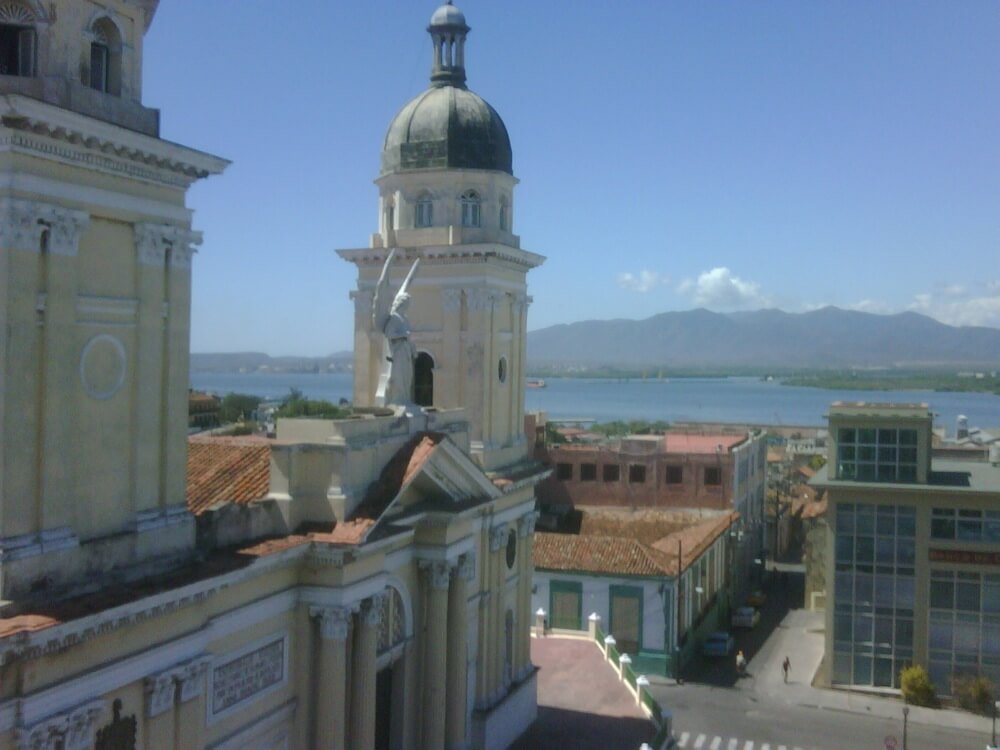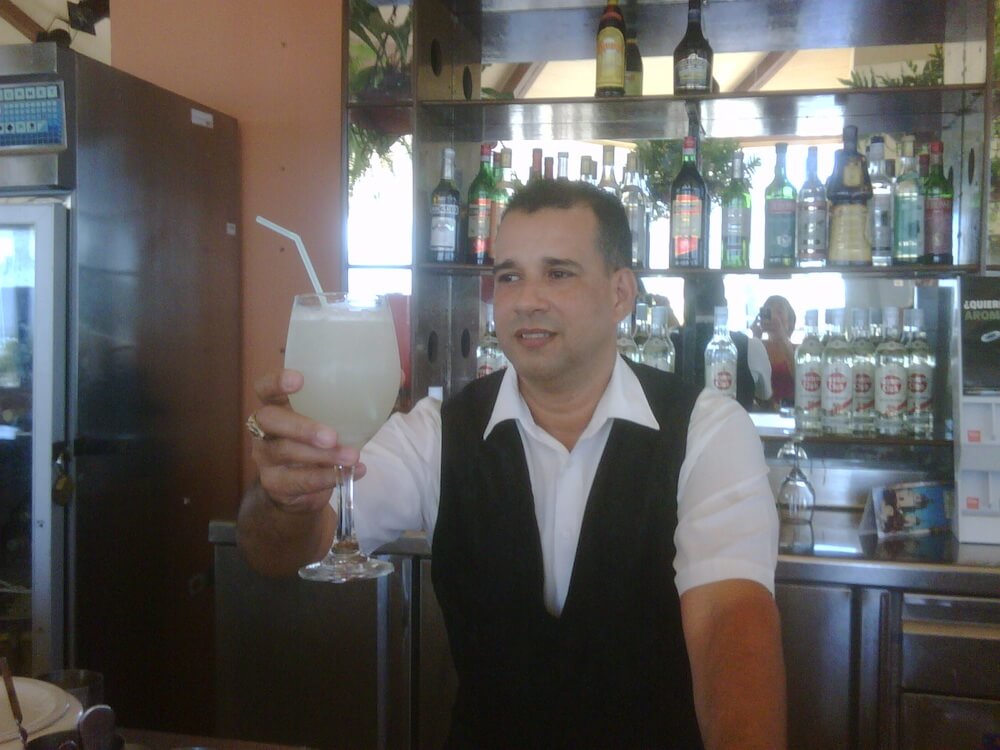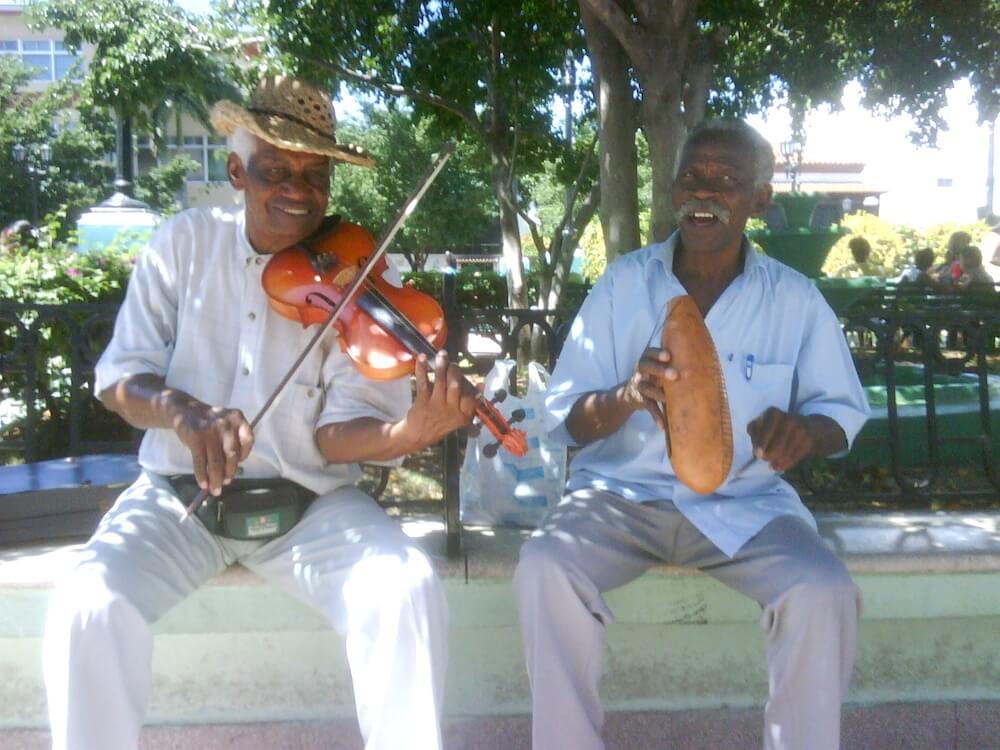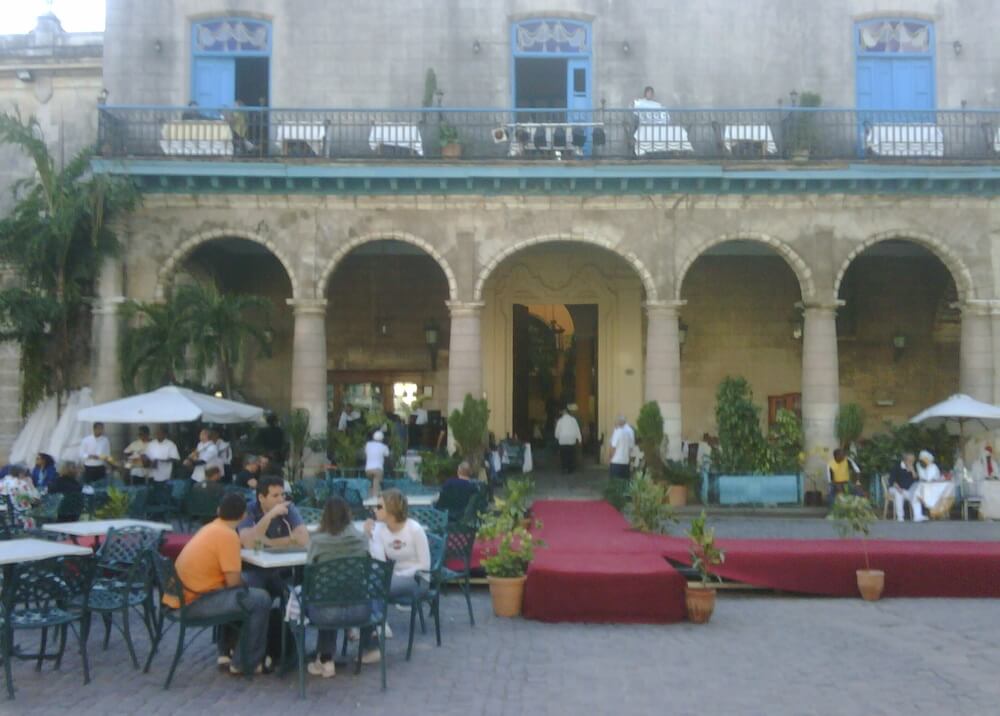 It was the most fabulous scam. Jose, the slick-looking Cuban, and his sexy sister Yani smiled at us as we wandered aimlessly down a street in Havana, gaping at the stunning colonial buildings.
It was the most fabulous scam. Jose, the slick-looking Cuban, and his sexy sister Yani smiled at us as we wandered aimlessly down a street in Havana, gaping at the stunning colonial buildings.
“What are you looking for?" he asked, and we told him good food and great mojitos. Jose had just hooked a dozen gullible tourists. “I know the perfect place,” he said, leading us down some back streets and through a decrepit doorway into a vast ornate interior.
Up some stairs was a restaurant we would never have discovered by ourselves. The waiters swung into action, pushing three tables together, producing a round of cocktails and setting down paper placemats offering a set menu for 15 pesos (R180).
Yani plonked herself between two of the men and seductively squeezed the biceps of our Irish hunk, Martin. “European men are so strong,” she cooed, “not like our weak little Cubans.” Jose was working his magic on the ladies, chatting to each of us in turn. We ate and knocked back mojitos, feeling very smug about finding a local eatery and making friends so quickly.
Yani was giving Martin her phone number, telling him it was her dream to have 10 children. Jose was grinding his hips as he taught one of the girls to salsa.
 It took a few minutes to figure out why a bill evenly split by 14 was coming up so short. Of course — our hosts weren't putting in a peso. As we dug deeper to pay for their share our grumbling was tempered with admiration for the beguiling couple who had eaten heartily, walked off clutching doggy bags, and no doubt earned a generous commission from the restaurant for reeling in so much business.
It took a few minutes to figure out why a bill evenly split by 14 was coming up so short. Of course — our hosts weren't putting in a peso. As we dug deeper to pay for their share our grumbling was tempered with admiration for the beguiling couple who had eaten heartily, walked off clutching doggy bags, and no doubt earned a generous commission from the restaurant for reeling in so much business.
Two weeks later I was back in Havana and grinning at the memory as I strolled down the same streets. In between I'd covered 2600km, staying in 10 different hotels and exploring elegant towns, worn-out villages, tropical forests and beaches.
Cuba is a Caribbean island, but it’s easy to forget that. There are palm trees and beaches, but the real Cuba is far more complex than any glossy picture postcard. For a start, it's a socialist state with street posters of revolutionary slogans rather than gaudy advertisements. Che Guevara pictures are everywhere. There are shortages of basic products, yet restaurant prices are high because they’re government controlled and the state seems determined to fleece the very tourists who could prove essential to its economy. That attitude — and the chance of earning hard currency that easily outflanks state-controlled wages — is turning Cubans into calculating cash extractors.
 In Cienfuegos I photographed a couple of musicians. The music stopped as soon as my camera clicked and a gourd used as an instrument instantly became a collection bowl. The cigar-smoking women featured in every guide book lose their charm when you see a demanding hand before the smoke.
In Cienfuegos I photographed a couple of musicians. The music stopped as soon as my camera clicked and a gourd used as an instrument instantly became a collection bowl. The cigar-smoking women featured in every guide book lose their charm when you see a demanding hand before the smoke.
So far Cuba is still off the beaten track. My travelling companions and I had wanted to get there before the US repeals the sanctions that keep its citizens away, fearing an American invasion will see the prices soar and any uncommercial aspects of the island eradicated.
Havana is so European I kept thinking our coach had taken a detour to Barcelona. There are wide boulevards designed for the gentry to traverse in their carriages, and narrow cobbled streets where every entrance hides a picturesque courtyard. A massive restoration campaign is under way because old Havana has been declared a World Heritage Site. The results are impressive.
Some squares are beginning to look a touch too pretty, but after years in which old buildings were destroyed and more practical Russian-style monstrosities installed, you can forgive the over-exuberant paint colours that look a touch Hansel and Gretel. Many magnificent buildings have been converted into hotels or restaurants aimed at foreigners. When we wonder why the streets are so deserted at night, our guide reminds us it’s because the locals can’t afford any revelry.
 It didn’t take long to figure out we’d enjoy a more authentic experience if we stayed away from places tourists are supposed to go. I sampled delicious bakery snacks that cost so little; a ham sandwich toasted on a street stall came with a big smile and a jovial conversation about my appalling Spanish. In the “official” restaurants, surly waiters are in no rush to end their conversations and deign to acknowledge you.
It didn’t take long to figure out we’d enjoy a more authentic experience if we stayed away from places tourists are supposed to go. I sampled delicious bakery snacks that cost so little; a ham sandwich toasted on a street stall came with a big smile and a jovial conversation about my appalling Spanish. In the “official” restaurants, surly waiters are in no rush to end their conversations and deign to acknowledge you.
Trinidad is one of Cuba's prettiest towns; a little gem where you can't put your camera down for a minute before another sight grabs your attention. I had some wonderful photos, until someone broke into my suitcase and stole my camera.
To the southeast are the Sierra Maestra mountains and Santiago, where revolutionary rumpuses took place. We strike out up amountain, slipping on rocks to reach the hideout where Guevara and Fidel Castro holed up with their rebels.
We’re puffing and sweating by the time we reach rebel HQ, and I feel a little sheepish to see that some rebels must have struggled up the mountain shouldering a massive fridge.
Cuba is a country of contrasts and contradictions in the sights, the people, and the standards of living. It’s a country in transition, especially with frail Castro bowing out. Nobody says this directly, but the revolutionary hero imposed some rather odd ideas. Cubans are practically prohibited from leaving the country, although many bailed out illegally to escape the supposedly egalitarian utopia.
They struggle under a divisive two-currency system that turns tourists into walking wallets. There's excellent education and healthcare, but you won't find a battery or moisturiser in the shops. The political void and the expected ending of US sanctions put Cuba at a crossroads. It could become a paradise for sun seekers who also want history, culture, lively music and cheap cigars. But get there quickly, in case it all goes up in smoke.